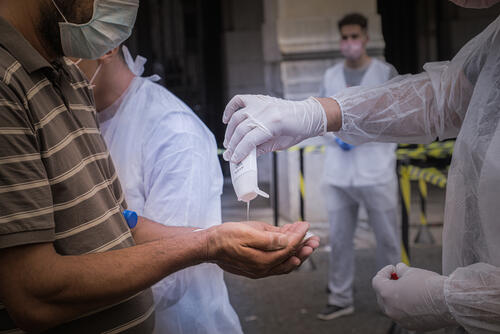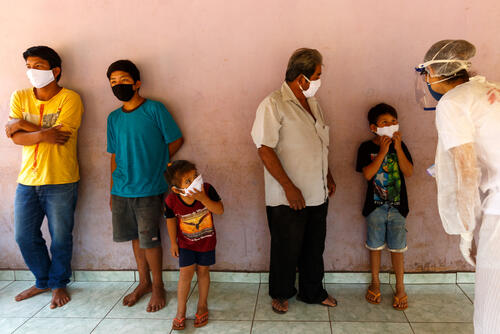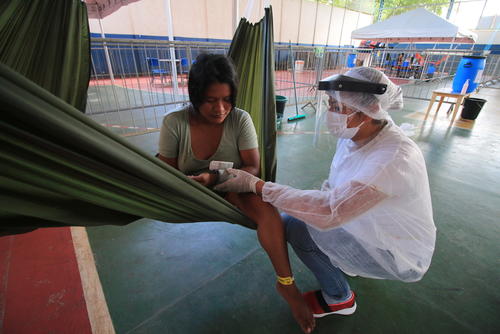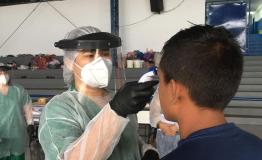Médecins Sans Frontières (MSF) is responding to COVID-19 in Brazil. Teams have started working in the nation’s largest city, São Paulo, which is the place with most of the country’s cases of the disease. MSF is also working in Boa Vista, in Brazil’s north, an area with a significant number of Venezuelan migrants and asylum seekers.
In São Paulo, our activities are concentrated in sites attended by homeless people. In Boa Vista, we are working with Venezuelan migrants and asylum seekers who live in precarious conditions, with little space and often without regular access to water.
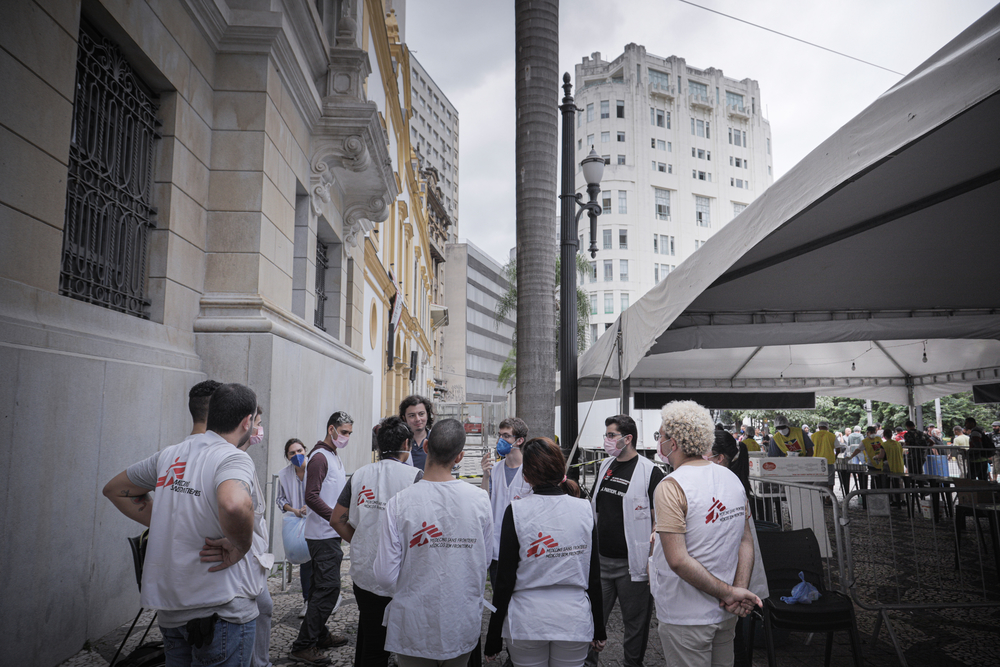
MSF responds to coronavirus COVID-19 in São Paulo
MSF is making final arrangements to start working in Rio de Janeiro, also with vulnerable populations. A team was also sent to the Amazonian city of Manaus to evaluate how we can contribute to the local efforts against COVID-19.
In addition to the great complexity of the pandemic itself, in Brazil there has been a great deal of conflict between different levels of government in relation to physical distancing, with contradictory views.
“The experience of other countries where the pandemic arrived before Brazil has shown the importance of adopting physical distancing measures,” says Ana de Lemos, executive director of MSF-Brazil. “It is important that we slow down the rate of contagion as much as possible so that we can reduce the number of serious cases that reach the hospitals at the same time.”
“At times like this, it is crucial to have a clear orientation, but unfortunately we have witnessed the dissemination of contradictory guidelines that hinder compliance with the necessary measures,” adds de Lemos.
It is important that we slow down the rate of contagion as much as possible so that we can reduce the number of serious cases that reach the hospitals at the same time.Ana de Lemos, executive director, MSF Brazil
Activities in São Paulo
MSF’s work in São Paulo began in early April and is focused on homeless people, migrants and refugees, drug users and the elderly. These groups were already in a state of great vulnerability even before the pandemic.
Our teams are providing medical consultations for screening and detection of people with suspected cases of COVID-19 and referring patients in more serious conditions to hospitals. The work also includes education on hygiene measures and is being carried out in partnership with local authorities and organisations that are already involved with the street population in São Paulo.
“If we are unable to identify them early enough, patients in more serious condition that are on the street will die on the street,” said Ana Letícia Nery, MSF´s project coordinator in São Paulo.
MSF staff are also visiting shelters, government-run subsidised restaurants, and food distribution sites for the homeless. Additionally, we are providing training on the use of protective equipment for health professionals.
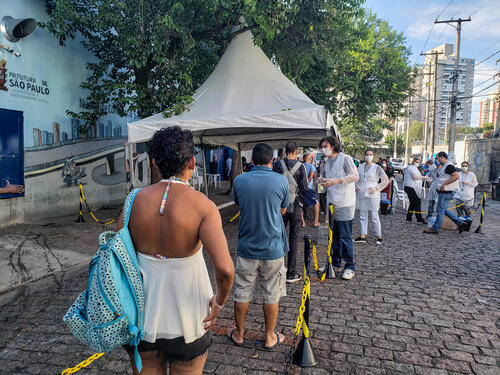
Activities in Boa Vista
In Boa Vista, in Roraima state, we are also working with vulnerable people, particularly Venezuelan migrants and asylum seekers. MSF's work is taking place in coordination with local authorities and other organisations, during “Operação Acolhida”, an initiative of Brazilian authorities and the United Nations Refugee Agency to assist Venezuelan migrants arriving in Brazil.
In recent years, Roraima has received a large number of migrants and asylum seekers who left Venezuela. At the end of 2018, we began our project in Boa Vista with the aim of supporting the local health system to cope with the increasing demand. With the pandemic, MSF is maintaining this project, but adapting part of the activities to help overcome the challenges brought by COVID-19.
Our teams regularly visit informal shelters where a considerable part of the migrant population lives. The capacity of official shelters, where housing and hygiene conditions are reasonably maintained, is about 7,000 people. But there are tens of thousands for whom there is no place in these shelters and who live in spontaneous settlements, usually overcrowded, lacking access to clean water, sewerage and electricity. Other migrants are living on the street.
Even before the arrival of the pandemic, Roraima's health system was already fragile, and this situation has worsened things even more.Michael Parker, MSF Project Coordinator in Boa Vista
“Even before the arrival of the pandemic, Roraima's health system was already fragile, and this situation has worsened things even more,” says Michael Parker, MSF Project Coordinator in Boa Vista. “We are working to try to lighten the burden on the local system, both in relation to COVID-19 and other diseases.”
MSF health promotion teams have visited informal shelters, providing hygiene and physical distancing guidance to residents. Work is also being carried out, together with partner organisations, to expand access to water in formal and informal shelters. Hygiene kits are also being distributed on site.
The work of medical professionals in Boa Vista gives special attention to people with pre-existing diseases, which make them more susceptible to infection with the new coronavirus. MSF staff will also provide training on infection prevention and control measures to health teams that will work at the field hospital set up by the state government in Boa Vista to assist COVID-19 patients in Roraima.
Besides specific actions related to COVID-19, MSF continues to carry out the activities of our project, including primary care medical consultations in three public health units, mental health sessions in official and informal shelters and health promotion activities.



